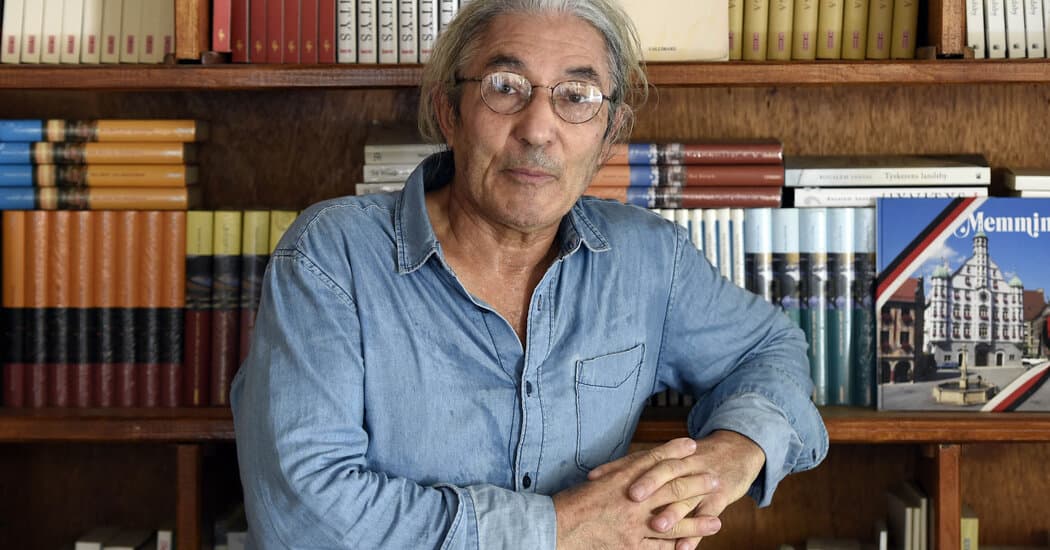We're loading the full news article for you. This includes the article content, images, author information, and related articles.
The release of French-Algerian writer Boualem Sansal, brokered by Germany, eases a year-long diplomatic crisis between Algiers and Paris, highlighting the intricate power dynamics and post-colonial tensions shaping North African-European relations.

GLOBAL - Algeria has pardoned and released the critically acclaimed French-Algerian novelist Boualem Sansal after nearly a year of imprisonment that triggered a severe diplomatic crisis with France. The breakthrough, announced on Wednesday, 12 November 2025, was secured not by Paris, but through the direct humanitarian intervention of German President Frank-Walter Steinmeier, according to a statement from the Algerian presidency.
Mr. Sansal, 81, was immediately flown to Germany on a military plane to receive urgent medical treatment for prostate cancer, a condition his family and lawyers stated had worsened during his detention. French President Emmanuel Macron, who had previously described the writer's detention as Algeria “dishonouring itself,” confirmed he had spoken with Mr. Sansal by phone and thanked both President Steinmeier for his “fruitful cooperation” and Algerian President Abdelmadjid Tebboune for the “act of humanity.”
The resolution underscores a significant diplomatic manoeuvre, allowing Algeria to release the high-profile prisoner without appearing to capitulate to pressure from its former colonial ruler, France. French Ambassador Stéphane Romatet acknowledged the necessity of a third party, stating on Thursday, 13 November 2025, that the crisis was so profound that a “happy outcome... would go through a trusted third party and the German solution quickly came forward.”
Boualem Sansal was arrested at Algiers airport on 16 November 2024. In March 2025, he was sentenced to five years in prison on charges of “undermining national unity” and insulting public institutions under Algeria's anti-terrorism laws. The charges stemmed from an interview he gave to a French media outlet in which he questioned the current borders between Algeria and Morocco, suggesting France had unfairly annexed Moroccan territory to French Algeria during the colonial era. The Algerian government viewed these remarks as a direct challenge to its national sovereignty.
The author's imprisonment became a major flashpoint in the rapidly deteriorating relationship between Paris and Algiers. Relations were already strained following France's 2024 decision to back Moroccan sovereignty over the disputed Western Sahara territory, a move that angered Algiers, which supports the Polisario independence movement. The dispute escalated with mutual recalls of ambassadors and expulsions of diplomatic staff, alongside disagreements over migration and security issues. Mr. Sansal's case was widely seen by international observers and human rights groups as part of a broader crackdown on dissent in Algeria.
The pardon was granted after German President Steinmeier made a formal request to President Tebboune on Monday, 10 November 2025, appealing for Mr. Sansal's release on humanitarian grounds due to his “advanced age and fragile health.” The Algerian presidency's public statement on Wednesday explicitly credited the decision to this request from the “esteemed president of the friendly Federal Republic of Germany.” This framing allowed the resolution to be presented as a gesture of goodwill towards a trusted partner, Germany, with whom President Tebboune reportedly shares a strong personal relationship. The German state has assumed full responsibility for Mr. Sansal's transport and medical care.
While this event has no direct, discernible impact on Kenya or the East Africa region, it serves as a critical case study in international diplomacy and post-colonial relations. The successful German mediation highlights the shifting influence of European powers in North Africa. It demonstrates how historical baggage can complicate bilateral relations, creating openings for other international actors to play pivotal roles. The case also brought renewed international attention to the state of freedom of expression in Algeria, with organizations like PEN International and prominent authors such as Salman Rushdie and Wole Soyinka having campaigned for Mr. Sansal's release. The resolution of this specific standoff may offer a path toward de-escalation between France and Algeria, though the underlying sources of tension remain deeply entrenched. For now, the focus remains on the health of Boualem Sansal, a celebrated and controversial literary voice, now free after a year-long ordeal that reverberated across the Mediterranean.
Keep the conversation in one place—threads here stay linked to the story and in the forums.
Sign in to start a discussion
Start a conversation about this story and keep it linked here.
Other hot threads
E-sports and Gaming Community in Kenya
Active 9 months ago
The Role of Technology in Modern Agriculture (AgriTech)
Active 9 months ago
Popular Recreational Activities Across Counties
Active 9 months ago
Investing in Youth Sports Development Programs
Active 9 months ago
Key figures and persons of interest featured in this article